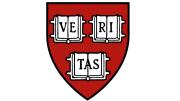Charles Lieber, chair of Harvard’s department of chemistry and chemical biology, and a University Professor, a designation bestowed on only the most eminent scholars, has been arrested, charged with misleading investigators from the Department of Defense about his work for a Chinese government-sponsored program designed to identify and financially support leading scientific researchers both in China and abroad. The U.S. government has characterized the program as a threat to national security.
An affidavit accompanying the criminal complaint in Boston further accuses Lieber of making false statements to the National Institutes of Health—a major funder of his research into nanoscale biological interfaces, such as transistors that can interact with intracellular biological machinery—as well as to Harvard itself, about his connections to the Thousand Talents program and the Wuhan University of Technology.
According to The New York Times, “Dr. Lieber has made no secret of his work with Chinese partners, joining five senior Chinese officials and scientists in 2013 to found the WUT-Harvard Joint Nano Key Laboratory at the Wuhan University of Technology.” He was recently named co-winner of the Welch Award, for pioneering work in nanoscience and nanomaterials.
Harvard issued a brief statement about Lieber’s arrest: “The charges brought by the U.S. government against Professor Lieber are extremely serious. Harvard is cooperating with federal authorities, including the National Institutes of Health, and is conducting its own review of the alleged misconduct. Professor Lieber has been placed on indefinite administrative leave.” Such leaves typically mean the affected person is denied access to campus and is separated from University teaching and research roles.
Today’s announcement follows the previously reported arrest of medical student Zaosong Zheng, who is charged with attempting to smuggle cancer research material out of the country from his laboratory at Harvard-affiliated Beth Israel Deaconess Medical Center. That arrest, and the charges filed against Lieber, come during a time of increased government scrutiny of China’s effort to acquire scientific and technical expertise from corporations, universities, and other targets through means alleged to be both legal and “extralegal.”
Reports by Bloomberg News and The Chronicle of Higher Education provide further context for the government’s crackdown on Chinese access to cutting-edge biomedical research.









